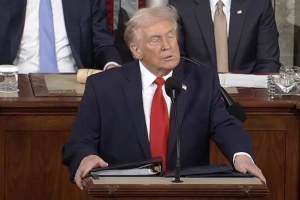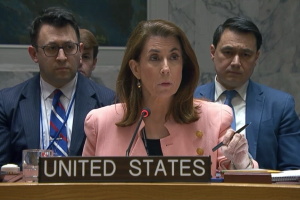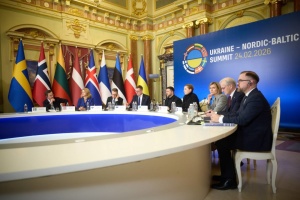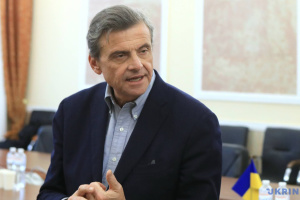
In 4 years, it may be different USA: German expert gives Kyiv advice in case of Trump's withdrawal from negotiations
This opinion was expressed by Rachel Tausendfreund, Senior Research Fellow at the German Council on Foreign Relations (Deutsche Gesellschaft für Auswärtige Politik, DGAP), in an interview with an Ukrinform correspondent.
“It's hard to know what will happen next, but I think it's clear that Trump and most of his government want to leave. So it's not an empty threat, it's a strategic decision,” the expert said.
She noted that there is no majority in the current American government that would support the continuation of such a powerful “investment” in Ukraine. This majority is also convinced that the Europeans should have done much more and the Americans should have done less. “Most in the American government would be happy if the Europeans themselves said: 'We'll do it without you'. That's what they want,” Tausendfreund said.
However, she acknowledged that there is still a strong and sizable minority in the United States that sees things differently.
At the same time, the American people, according to the expert, are beginning to feel a bit upset and “tired.” Economically, things are not going well in the United States, which means that it is becoming increasingly difficult to pass large aid packages from the political side.
Tausendfreund believes it is extremely unlikely that the Trump administration will propose another large military support package, and that it would even be possible to get it through Congress. She suggests, however, that the Americans would be willing to offer support to Ukraine, so to speak, on a supplementary basis.
“What exactly “withdrawal” means [in terms of assistance to Ukraine] remains somewhat unclear, because withdrawal does not mean 100%, it can mean 40% or 60% withdrawal,” the agency's interviewee said, adding that it also partly depends on the Europeans. In her opinion, Ukraine's partners are likely to buy weapons from the United States, although it will be expensive. In addition, the problem may be that the Americans will not want to sell some of what they have in the face of a possible conflict with China.
In such a situation, the expert sees it best to “find a temporary solution” and wait, because “after the primaries (elections) or in four years, it may be a different United States.”
She emphasized that the Europeans could also show a little flexibility if they wanted to. Among the possible alternatives, the expert mentions, in particular, the issue of territory. “I think it's worth remembering Germany, where the territory was “given away” for 40 years. I am not saying that it will take 40 years now, but we are open to solutions that leave the door open and do not undermine the Trump administration,” Tausendfreund said, referring to the division of Germany after World War II and the subsequent reunification of the state.
In general, she noted that Europeans should clearly decide whether Ukraine's security is part of European security. “If they see it that way, they should act accordingly. And, accordingly, they should try to engage the Americans so that they continue to provide at least a small amount of assistance,” said Tausendfreund. She believes that the idea that Ukraine's security can be separated from the security of NATO countries is absolutely wrong, and Trump needs to be convinced of this.
As reported earlier, US President Donald Trump himself and members of his administration have repeatedly said that they may give up trying to make progress in ending the war in Ukraine or at least a ceasefire, blaming the parties for their unwillingness to make concessions.
Photo: PAP/EPA




